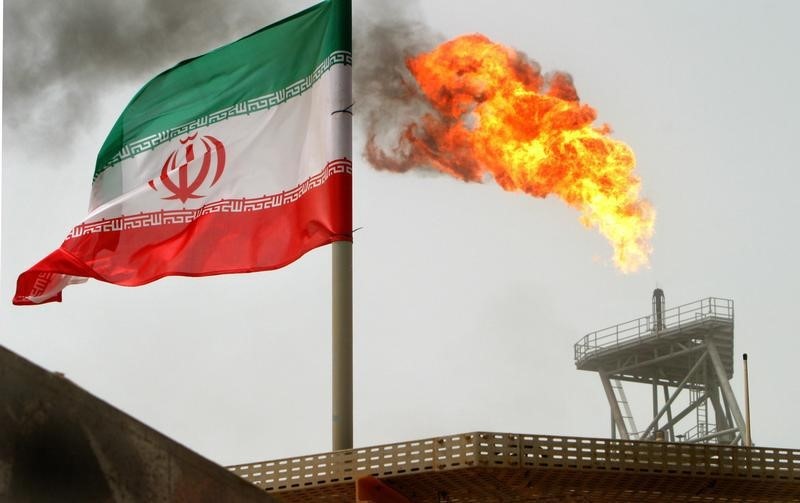By Barani Krishnan
Investing.com -- Oil prices rose strongly for the first time in a week after the United States announced new sanctions on Iranian oil, ahead of President Joe Biden’s tentative visit to the Middle East to meet with Gulf leaders, including Saudi Crown Prince Mohammed bin Salman, who’s an arch-rival of Iran’s Mullahs.
New York-traded West Texas Intermediate, the benchmark for U.S. crude, was up $2.50, or 2.2%, to $117.81 per barrel by 1:52 PM ET (17:52 GMT). It had tumbled to as low as $112.33 earlier, responding to the largest U.S. interest rate hike in 28 years by the Federal Reserve a day earlier.
London-traded Brent crude, the global oil benchmark, was up $1.52, or 1.3%, to $120.03, after sinking to $115.59 earlier.
Thursday's sanctions against Tehran built on past sanctions against Triliance Petrochemical Co Ltd, which was sanctioned in 2020, and Petrochemical Commercial Company, which was sanctioned in 2018. According to the Treasury Department, these two entities are "instrumental in brokering the sale of Iranian petrochemicals abroad."
The move against the network of Iranian petrochemical producers — and companies in China and the United Arab Emirates fronting for them — came as negotiations headed to nowhere between Tehran and world powers to revive a deal that aims to restrict Iran’s nuclear ambitions for the chance of letting it resume its petroleum exports without U.S. sanctions.
"The United States is pursuing the path of meaningful diplomacy to achieve a mutual return to compliance with the Joint Comprehensive Plan of Action. Absent a deal, we will continue to use our sanctions authorities to limit exports of petroleum, petroleum products, and petrochemical products from Iran," Brian Nelson, U.S. Treasury under-secretary for terrorism and financial intelligence, said in a press release.
Missing was, of course, the political timing of the whole thing, which came just weeks ahead of Biden’s tentative Gulf visit and meeting with the Saudi crown prince — Saudi Arabia’s king-in-waiting, commonly referred to by his initials as MbS.
Just a couple of weeks ago, Biden had played down the prospects of a meeting with MbS. During his 2020 campaign for the White House, the president had pledged to make Saudi Arabia a "pariah" for the apparent role played by the kingdom and its crown prince in the 2018 murder of Saudi-turned-U.S. resident Jamal Khashoggi. A columnist with the Washington Post, Khashoggi had been critical of MbS.
Biden kept up with his stance against the Saudis and the crown prince for almost 18 months after coming to office in January 2021. But record U.S. gasoline prices this year due to a global squeeze in oil supplies and falling popularity among potential voters ahead of the U.S. midterm elections in November appears to have softened the president’s resolve.
MbS needs unequivocal U.S. support for Saudi Arabia in the Yemen war and for Biden to address Gulf concerns about Iran's missile program and its regional proxies. The White House earlier this month praised MbS’ for helping secure an extension of a U.N.-brokered truce between Yemen's warring parties.
Biden, in return, simply needs more oil from OPEC, the 13-nation Organization of the Petroleum Exporting Countries led by Saudi Arabia.
A mere nod from MbS would allow his kingdom, which effectively controls OPEC and its 10 oil producing allies, including Russia, to open their oil spigots a little more, providing some relief to American consumers struggling from fuel prices at record highs of $5 a gallon or more.
A senior U.S. official told Reuters earlier this week that if Biden "determines it's in his interest to engage with any particular leader, and if such an engagement can deliver results, then he will do so."
